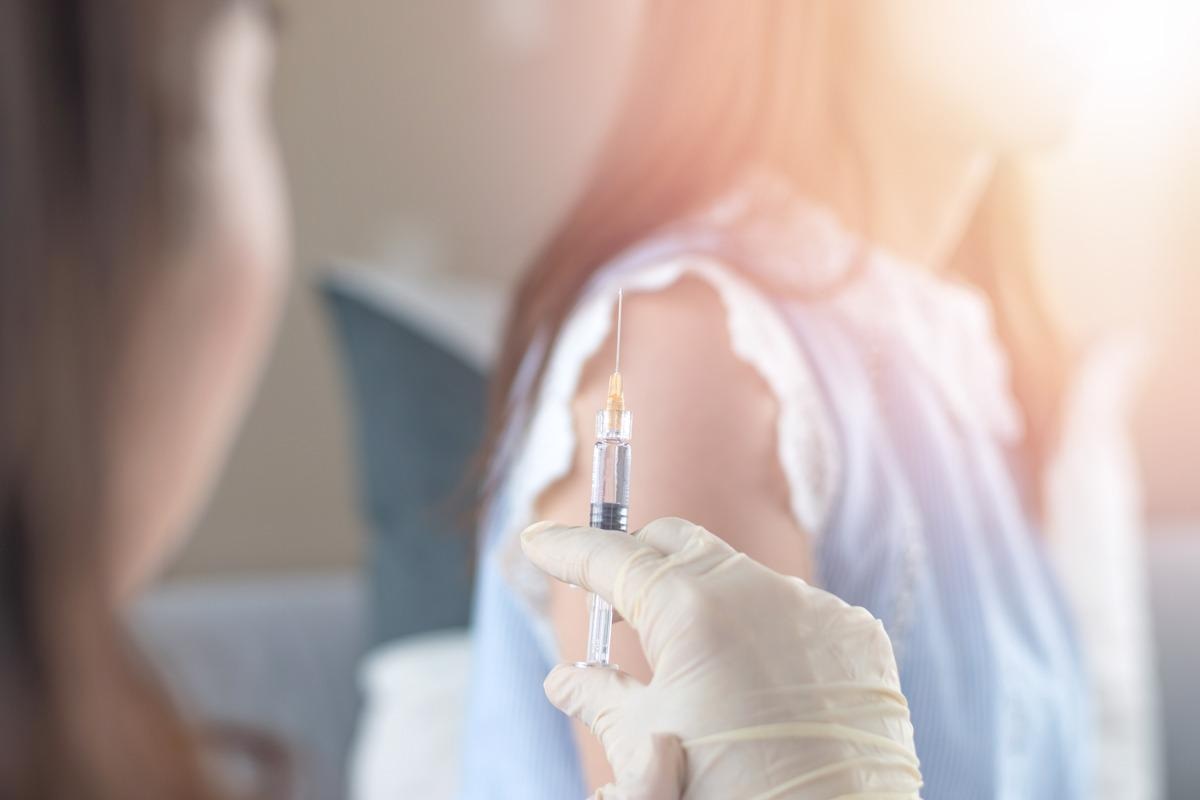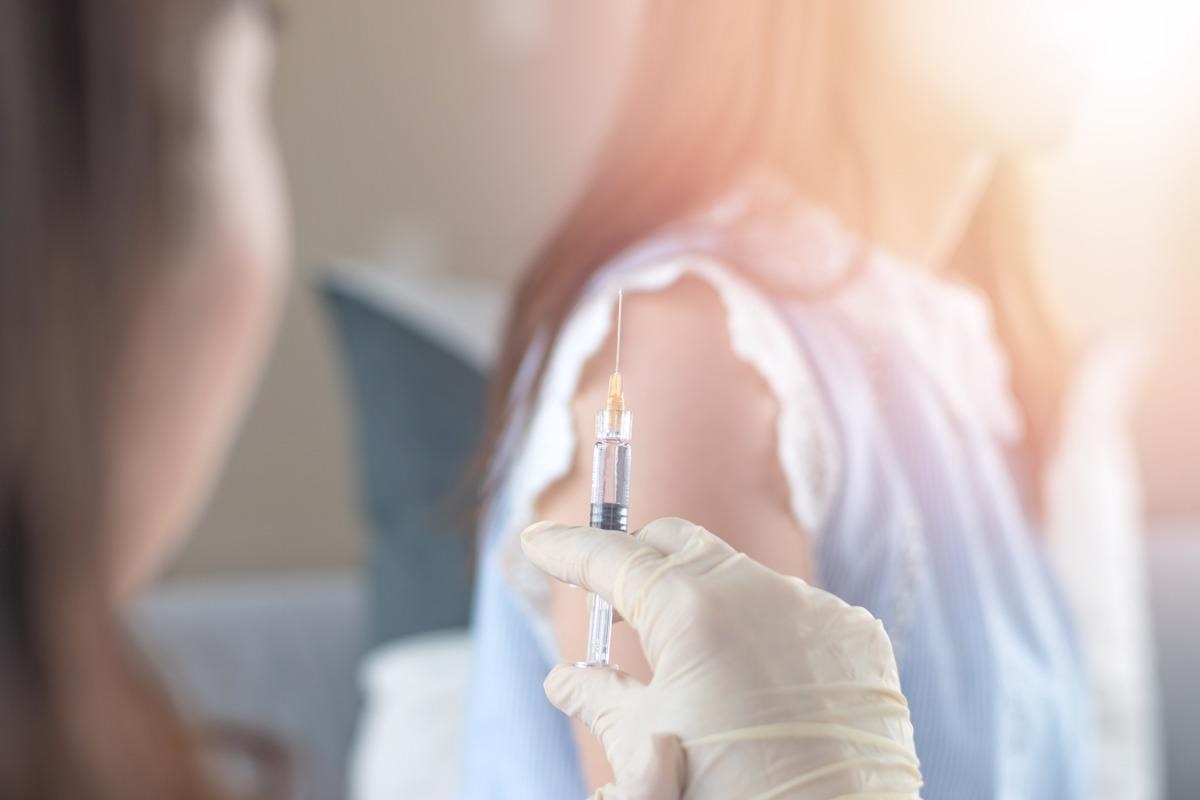Several earlier studies have indicated a favorable effect of flu shots on the risk of infection with the severe acute respiratory syndrome coronavirus 2 (SARS-CoV-2), as well as on the risk of symptomatic and severe coronavirus disease 2019 (COVID-19) after infection. A new preprint reports the effectiveness of influenza vaccination in this light.

Introduction
The influenza vaccine is protective against the influenza virus, reducing the number of cases and deaths that occur with this seasonal pathogen. Flu shots are a high priority for older adults and healthcare workers (HCWs) at a greater risk of infection and complications.
Earlier research suggests a link between SARS-CoV-2 infection/adverse COVID-19 outcomes and prior influenza vaccination. There was a need to make sure that this was not because flu shots are more likely to be taken by the health-conscious, who are also more compliant with protective health behaviors against COVID-19. This is called the healthy user effect and is a potential source of bias in such studies.
The current study, which appears on the medRxiv* preprint server, was performed in Qatar, including over 30,000 healthcare workers vaccinated against influenza during the period between September 17, 2020, and December 31, 2020, when the annual flu shots are usually given. Significantly, this was before the rollout of COVID-19 vaccines.
The vaccinated participants had a median age of 36 years, while a control group had a slightly lower median age of 35. All participants received the quadrivalent Influvac Tetra vaccine (Abbott). Cases and controls were in a ratio of 1:5.
The subjects were tested for the virus by a polymerase chain reaction (PCR) test at a median of 1.5 months from vaccination. Of over 30,000 HCWs, over 12,000 were tested, with nearly 600 testing positive and 10,000 always tested negative. About two-thirds underwent testing because of COVID-19-like symptoms.
What did the study show?
The results showed that the flu shots reduced the risk of SARS-CoV-2 over the next two weeks by 30%. Conversely, they reduced the risk of severe or fatal COVID-19 by 90%. Of nearly 130 individuals who tested positive for SARS-CoV-2 by PCR after taking the flu shot, one developed severe COVID-19 (requiring hospitalization), and none progressed to critical or fatal disease.
In contrast, among nearly 400 unvaccinated patients who tested positive, there were 17 severe and 2 critical cases, though no deaths occurred.
“Recent influenza vaccination is associated with an appreciable reduction in the risk of SARS-CoV-2 infection and COVID-19 severity.” Striking though this statement is, it must be noted that the study included small numbers of severe cases. Nonetheless, the evidence supports the reported effectiveness of the influenza vaccine against both infection with and COVID-19 disease as a result of SARS-CoV-2.
The protection mechanism is as yet unexplained but could be due to a general rise in immunologic responsiveness enhancing nonspecific immunity or trained specific immunity. The former does not usually last beyond some weeks, and given that even specific COVID-19 vaccines are known to wane in efficacy quite rapidly, it may not play a long-term role in protection.
Trained immunity is the response of the innate immune system, the first line of defense, whereby immune memory is formed to provide long-term protection against foreign antigens.
Another effect could be due to bystander immunity, a process whereby infection and inflammation stimulate a prolonged response that exposes autoantigens to the host immune system.
More importantly, the study is not generalizable because it includes mostly young, healthy HCWs. However, this negates the healthy user bias. Overall, therefore, “The findings support benefits for influenza vaccination that extend beyond protection against influenza infection and severe disease.”
*Important notice
medRxiv publishes preliminary scientific reports that are not peer-reviewed and, therefore, should not be regarded as conclusive, guide clinical practice/health-related behavior, or treated as established information.
- Tayar, E. et al. (2022). Effectiveness of Influenza Vaccination Against SARS-Cov-2 Infection Among Healthcare Workers in Qatar. medRxiv. doi: https://doi.org/10.1101/2022.05.09.22274802 https://www.medrxiv.org/content/10.1101/2022.05.09.22274802v1
Posted in: Medical Science News | Medical Research News | Disease/Infection News
Tags: Coronavirus, Coronavirus Disease COVID-19, covid-19, Efficacy, Flu, Healthcare, Immune System, immunity, Inflammation, Influenza, Pathogen, Polymerase, Polymerase Chain Reaction, Research, Respiratory, SARS, SARS-CoV-2, Severe Acute Respiratory, Severe Acute Respiratory Syndrome, Syndrome, Vaccine, Virus

Written by
Dr. Liji Thomas
Dr. Liji Thomas is an OB-GYN, who graduated from the Government Medical College, University of Calicut, Kerala, in 2001. Liji practiced as a full-time consultant in obstetrics/gynecology in a private hospital for a few years following her graduation. She has counseled hundreds of patients facing issues from pregnancy-related problems and infertility, and has been in charge of over 2,000 deliveries, striving always to achieve a normal delivery rather than operative.
Source: Read Full Article
